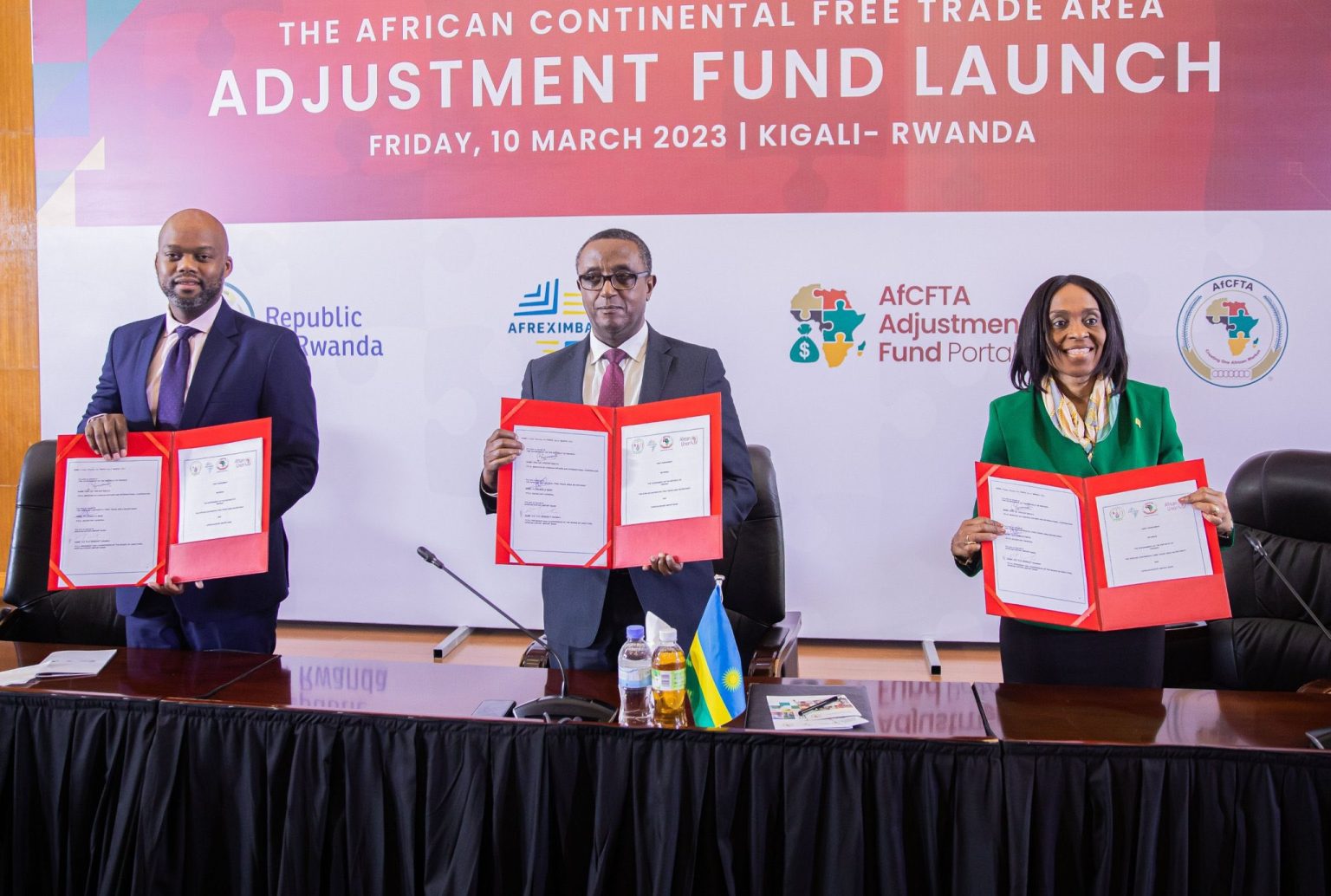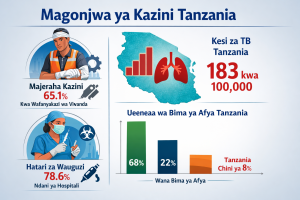
Home advantage for East African Community Members in the now Operational AfCFTA adjustment Fund.
Operationalizing a Financing Opportunity
Recently, I wrote on the need for the swift operationalization of the African Continental Free Trade Area (AfCFTA) adjustment fund and what it means for the African continent in transitioning into a common single market era. September 29 saw the first meeting of the board of the fund in conjunction with Afreximbank under which it is managed which facilitated its operationalization and undertaking of critical instruments and documents. The operationalization of the fund spells good fortunes for the East African Community that, like other Regional integration bodies in the continent, has struggled to transition into a truly common market under shared goals for prosperity.
While the fund is expected to be fully operational in the second quarter of 2024, the approved laws and regulations to govern the fund provide a mechanism for East African Nations to chart a way to take advantage of the fund. The region, alive to the fact that it hosts the fund in Rwanda, ought to start planning and making concessions, to allow for a reduction in cross-border trade barriers that inhibit successful integration. The fund promises to provide a cushion to countries for short-term revenue losses and enhance the capacity of the private sector in value-added goods and service production.
A Unique Funding Opportunity
The fund is unique in that it is designed to benefit both countries and investors by providing capital, just like any other financial institution, and covering for losses incurred by individual nations in making cross-border trade concessions. The structure of the fund is segmented into three bases that include a base fund, a general fund, and a credit fund, structured to enhance a better transition by cushioning countries and investors alike.
The base fund
This is the component of the fund that addresses revenue losses considering the desire of the AfCFTA to create a single African market of 1.3 billion people and a combined Gross Domestic Product of more than $3.4 trillion with the elimination of tariffs. Thus, this fund will offer support to African countries in implementing the various agreed provisions of the AfCFTA, its protocols, and Annexes and in collaboration with regional integration bodies such as the East African Community. Notably, contributions to this fund are expected to come from state parties, grands, and technical assistant funds. Rwanda’s selection as the host country for the AfCFTA Adjustment Fund is not merely a symbolic gesture. Thus, it presents a unique opportunity for the EAC to strengthen regional integration and promote cross-border trade success.

In capitalizing on the Base Fund, EAC member states ought to start harnessing harmonization of their tariff structures to eliminate revenue losses as tariffs are eliminated as the AfCFTA implementation takes effect. The region has a current four-band tariff structure of 0% on raw material and capital goods, 10% on intermediate goods, 25% on finished goods, and 35% on goods such as textiles and meat products while a variety of goods generally attract over 25% rates. Moreover, inconsistencies in government-imposed tariffs often contradict the EAC common external tariff which hurts trade exchanges between the two nations. The harmonization of the tariff structure uniformly across the region will be critical in maximizing the impact of the Base Fund in addressing expected concession losses.
“The fund is unique in that it is designed to benefit both countries and investors by providing capital, just like any other financial institution, and covering for losses incurred by individual nations in making cross-border trade concessions.”
The Base Fund offers individual nations technical assistance components that can be used to refine trade agreements under the common market protocol to accelerate the creation of a single market in the region. The EAC common market protocol calls for increased free movement of goods, people, services, capital, and labor while protecting resident and establishment rights. Thus, the community needs to prepare to utilize the technical assistance component of the fund to enhance the capacity of member states around trade policy formulation, customs procedures, and trade facilitation. The effective utilization would drive enhanced cross-border trade making it more efficient while boosting trade volumes among EAC members.
Moreover, the Base fund can support infrastructure development to enhance trade across the region. The expected incomes can replace lost revenues from tariff concessions allowing for investment in infrastructure projects that support trade in the region including border posts, customs facilities, digitalization, railways, and roads. For instance, lack of funds has caused delays in the development of 2100-km Tanzania’s standard gauge railway and the expansion of Kenya’s railway from Mombasa to Kampala inhibiting key trade corridors in East and Central Africa. The Base fund can therefore support critical elements of such projects to make cross-border trade in the region smoother and more cost-effective in the long run.
The General Fund
The General fund is designed to help mobilize concessional funding. This is aimed at supporting African countries in their adjustment process as they continuously integrate their economies under the AfCFTA and typically involves low-interest loans and grants. EAC members can therefore opt for actively seeking concessional financing from the General fund as opposed to external sources considering the growing debt challenges within the region. Countries can for instance seek the funding and direct it towards projects that promote regional integration, including the development of transportation hubs and the development of regional logistics.
There is a big education and labor market gap in the region that continues to impact trade due to the unavailability of skilled workers. The general fund is thus a ripe candidate for allocation to capacity-building needs such as in promoting trade-related skills and knowledge for government and private sector stakeholders in cross-border trade. For instance, digitalization is a current trend in cross-border operations in East Africa where players could benefit from skill upgrades, including knowledge of the mechanisms of the AfCFTA. A well-trained workforce is essential for realizing the full potential of AfCFTA and regional integration across the region.
Credit Fund
The AfCFTA adjustment fund also includes a Credit Base that is designed to help in mobilizing commercial funding which can be accessible to both public and private sectors. The fund is thus expected to provide the resources needed for countries and business to seamlessly adjust and seize opportunities created under the AfCFTA. The fund can therefore be a source of commercial support for East African businesses in the private sector. At a time when hard economic times lead to debt restructuring needs, this fund can provide additional capital for investment in value addition, technology adoption, and market expansions for entities. While this can further drive regional integration, it is bound to make EAC enterprises more competitive within the region and under the AfCFTA.
Often, governments may be prompted to opt for public-private partnerships which can be limited to local players and especially on projects that require substantial capital investment. By mobilizing commercial funding through the Credit Fund, governments can partner with the private sector to develop critical infrastructure, further facilitating cross-border trade. The missing railway network for long and bulky goods hauling is a suitable candidate for these collaborations to integrate a fully functional corridor within the region.
Notably, the credit finance can also be leveraged to facilitate access to trade finance for the EAC businesses. It can therefore provide the necessary credit lines and guarantees to reduce the risks associated with cross-border trade, encouraging greater participation by businesses.
The home advantages
The AfCFTA Adjustment Fund, hosted in Rwanda, presents a golden opportunity for the East African Community to accelerate its regional integration agenda and unlock the potential of cross-border trade. By strategically utilizing each component of the fund, the EAC can address tariff revenue losses, enhance capacity, invest in infrastructure, and support both the public and private sectors in adjusting to the opportunities created by AfCFTA.
It is crucial for the EAC member states to coordinate their efforts and develop a coherent regional strategy to maximize the impact of the fund. By doing so, the EAC can turn the challenges of cross-border trade into opportunities for economic growth, job creation, and poverty reduction. With Rwanda at the helm, the EAC has a unique chance to lead the way in realizing the transformative potential of AfCFTA for the benefit of its citizens and the entire African continent. The time for action is now, home nations.



